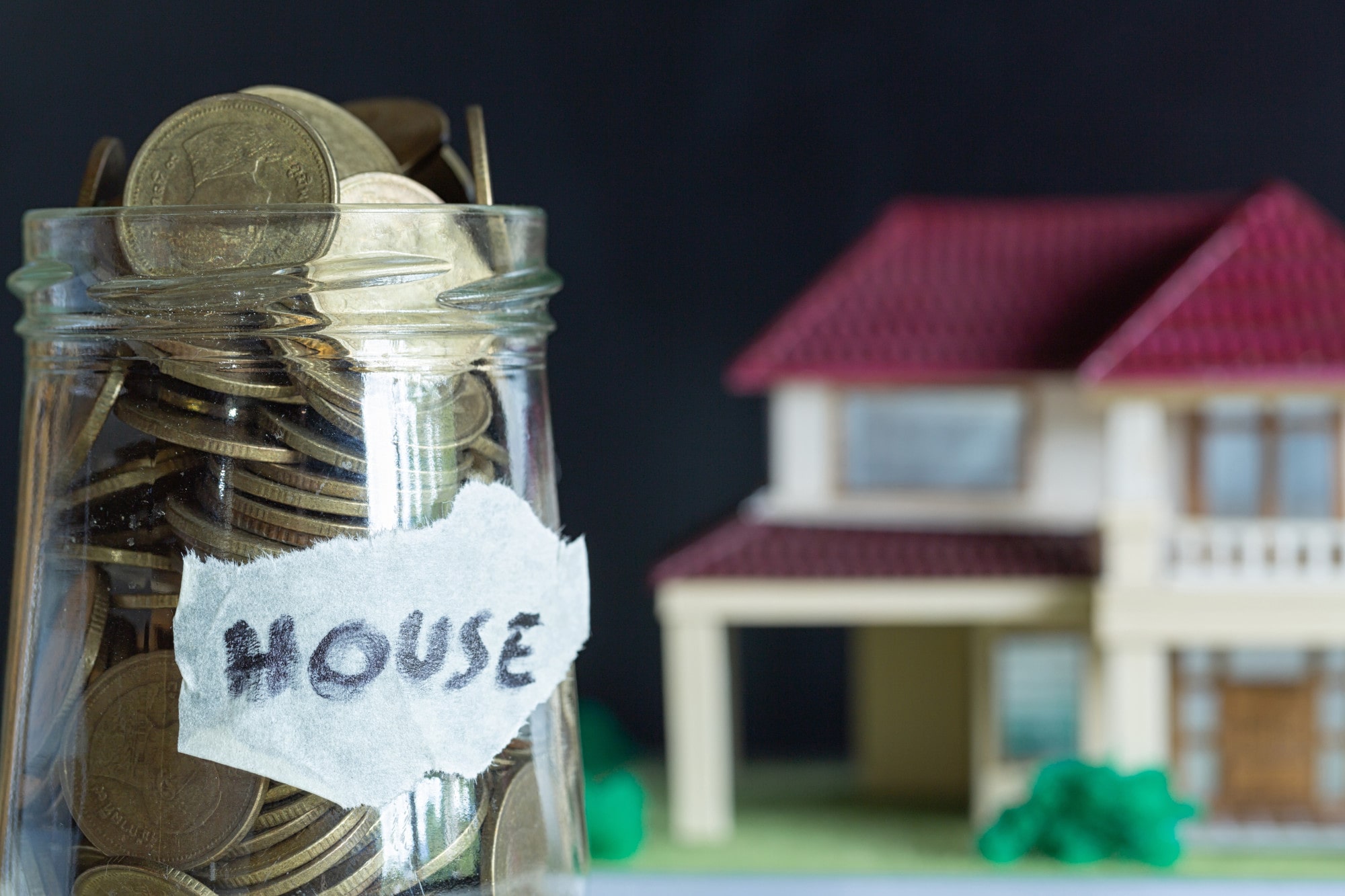10 Proven Strategies of Property Flipping

Flipping houses can be lucrative if you know how to find suitable properties at the right price. This comprehensive guide will explore strategies to help you uncover affordable houses to flip successfully. Whether you are a seasoned real estate investor or just starting, these tips will assist you in your quest to find, renovate, and profit from flip properties.
Flipping Houses. How does it work?
Flipping houses is a real estate investment strategy where you buy a property with an intention to sell it at a profit rather than live in it. Investors in this game focus on acquiring and then selling one or a group of properties, often aiming for a steady income through multiple flips.
So, how do you go about flipping a house or building? The key is to purchase at a low price and sell at a higher one. Instead of holding onto the property, the goal is to complete the transaction swiftly. This minimizes the time your money is tied up in the investment. Speed is prioritized over maximizing profit because every day you own the property, you incur expenses like mortgage, utilities, property taxes, insurance, and other homeownership costs.
However, flipping properties can be rather tricky. Typically, your profit comes from price appreciation in a hot real estate market where property values go through the roof, from making significant improvements to the property, or sometimes, both. For instance, an investor might buy a run-down property in a desirable neighborhood, renovate it extensively, and then sell it at a price that reflects its new and improved condition.
Houses to Flip. How to kick off?
To minimize financial risk and maximize returns, avoiding overpaying for a property and getting the hang of repair or upgrade costs before purchasing takes precedence. You can determine the ideal purchase price with this information.
One guideline is the 70% rule, which advises investors not to spend more than 70% of a property’s after-repair value (ARV) minus repair costs. The ARV is the property’s value once it’s fully renovated. Here’s how it works:
For instance, if a house is expected to sell for £400,000, in proper condition with £50,000 of repairs needed, then 70% of £400,000 is £310,000. Take away the estimated repair expenses (£50,000), leaving you with the highest amount you should pay, which is £260,000.
Flipping houses, like any other entrepreneurial venture, demands an investment of time, capital, meticulous planning, perseverance, expertise, and exertion. It is prone to being more formidable and costly than initial expectations. It is imperative to appreciate its complexity, as pursuing quick wealth through house flipping can result in financial woes.
Now, you’ve gained insights into the market and identified the property type suitable for your investment. The next step is locating properties that align with your criteria. There are various methods to accomplish this, and we’ll guide you through them.
How and where to find houses for flipping
- Leverage Online Real Estate Listings
The internet has transformed the way we search for properties, making real estate oriented websites invaluable sources for finding a house for flipping. They do include price range, and property type, streamlining your quest. Furthermore, they often provide comprehensive property descriptions and images, facilitating your assessment of their flip potential.
- Engage with Real Estate Agents
Cultivating relationships with local real estate agents can be a game-changer when it comes to scouting flip-worthy properties. Agents can access exclusive listings and promptly notify you when properties that align with your criteria become available. Clearly communicate to your agent that you are on the lookout for affordable houses with flip potential, and they will keep a watchful eye out for promising opportunities.
- Attend Real estate Auctions
Real estate auctions can be goldmines for investors seeking economically viable properties to flip. Properties auctioned off often come with price tags well below market values, offering substantial profit margins. Prioritize researching local auction schedules, familiarize yourself with the intricacies of the bidding process, and be prepared to act decisively when you spot a promising property.
- Network within the Real Estate Community
Networking is a high priority in the real estate field. Attending local real estate investment clubs, seminars, forums, and networking events will connect you with fellow investors, wholesalers, and industry professionals. Building a robust network can lead to off-market deals and valuable insights into hidden opportunities.
- Look into Foreclosures and REO Properties
Foreclosed homes and Real Estate Owned (REO) properties owned by banks often come with discounted price tags. Lenders are motivated to offload these properties swiftly, making them prime targets for flippers. Stay vigilant for foreclosure listings in your target areas, and be ready to pounce when a flip-worthy opportunity arises.
- Take account of Wholesalers
Wholesalers specialize in identifying distressed properties and selling them to investors, typically at a markup. While this may seem counterintuitive for finding affordable houses, wholesalers often negotiate bulk deals, offering cost-effective opportunities to investors. Forge relationships with reputable wholesalers to access a steady stream of potential flip properties.
- Explore Target Neighborhoods in Person
At times, the best opportunities are stumbled upon through hands-on exploration of neighborhoods. Keep an eye out for signs of neglect, such as overgrown lawns, boarded-up windows, or properties that appear abandoned. Investigate these properties and reach out to their owners to inquire about the possibility of a purchase. You might uncover hidden gems waiting for a motivated flipper.
- Utilize Real Estate Apps and Software
In addition to traditional websites, various real estate apps and software are designed to assist investors in property hunting. Apps such as DealMachine and PropStream provide data on distressed properties, absentee owners, and other valuable information to aid in identifying potential flip candidates.
- Partner with a Hard Money Lender
Hard money lenders can be invaluable allies on your house-flipping journey. They can provide swift financing, enabling you to act quickly when you spot a property with flip potential. Establishing a relationship with a hard money lender can give you a competitive edge, especially in hot real estate markets.
- Think Outside the Box
Sometimes, unconventional strategies yield remarkable results. Consider reaching out directly to homeowners with compelling offers to purchase their properties. By offering to alleviate them of the burden of a fixer-upper, you may secure a property at a favorable price. Creativity and persistence can pay dividends in your search for flip properties.
What are the Risks of House Flipping?
Property flipping is an approach that offers substantial rewards, but one may also encounter significant risks. Flipping demands a substantial initial investment, and if you don’t generate a profit from your flip, you could potentially lose that capital permanently. So, it is also worth taking into account some risk factors:
Market Trends. What’s the housing market’s direction? Is it on the upswing, holding steady, or potentially facing a downturn? Stay connected with national resources and your local real estate agent, ensuring you receive monthly updates about the market. In particular, focus on understanding year-over-year trends and the average number of days a property stays on the market in your area.
Demographic Changes. Is your market area witnessing growth, remaining stable, or experiencing a population decline? This information will guide your pricing strategy, determining how competitive you must be. Numerous online resources offer this data, with Census.gov being one of the most reliable sources.
Interest Rates. It’s crucial to keep a close watch on interest rates, especially in 2018 when there are expectations of an increase. This factor can significantly impact your investment decisions.
Renovation Plans. The budget for renovation should significantly influence your initial offer price. Neglecting this aspect could lead to profit loss, even if everything else proceeds smoothly. Ensure that a comprehensive inspection and necessary repairs are carried out for all visible issues. Instead of pursuing every upgrade you’d desire for your own living, concentrate on prioritizing fixing everything that is broken and updating what was outdated. But according to Insider, Jeremy Renner, well-known actor, has bought and remodeled over 20 homes, making millions of dollars in the process. He highlights: “Color is completely subjective, so stay away from trends. Use paint with a neutral or earth palette on the walls, and then add some jewel tones to the room with a couch or throw pillows. You can always hang a painting to add a little pop.”
Hidden Expenses. In the realm of property flipping, two crucial figures always demand your attention: the acquisition cost of the house and the refurbishment expenses. However, it’s essential to recognize that these two figures don’t cover all the financial aspects associated with flipping a house. There exists a myriad of other costs that must be factored in. These often-overlooked expenditures encompass property taxes, insurance, utilities, and closing expenses. Interestingly, these are the kind of details you seldom come across when indulging in house-flipping reality shows on television. Next time you’re engrossed in one of these programs, consider conducting your own parallel calculations, and you’ll soon notice that many of these hidden costs often get omitted from the equations they present on screen.
Selling is a breeze. Unfortunately, the current real estate landscape isn’t favoring quick property sales in many cities, leaving sellers often disappointed by the pace. In such circumstances, a house flipper must be prepared for the worst-case scenario. They can choose to retain the property and absorb the loss, potentially leading to severe financial strain or even bankruptcy. Alternatively, they may opt to rent out the house, but this undermines all the effort, time, and money invested in rehabilitating the property. It’s every house flipper’s nightmare to be unable to sell a house they’ve painstakingly restored. In such situations, it’s wiser to mitigate losses by adjusting the selling price rather than clinging to the property and risking further financial setbacks down the road.
The misconception that house flippers profit effortlessly from a seller’s predicament is not entirely accurate or a common occurrence in the real estate business. Nonetheless, it’s a sentiment that often crosses a seller’s mind. Successfully brokering a deal requires exceptional skill. In fact, one could argue that it’s even more critical than being proficient at property restoration, securing financing, or negotiating mortgages. Facilitating an agreement between a buyer and seller to the point of mutual satisfaction is the most gratifying aspect of the transaction.
And of course, Money Loss. In physical training, they often say, “No pain, no gain,” but in the world of business, the mantra is “No risk, no reward.” House flipping epitomizes this philosophy, offering the potential for substantial profits while carrying the looming threat of swift and significant losses. A common avenue for procuring houses to flip involves auctions or foreclosures. However, in such scenarios, conducting a comprehensive property inspection to identify potential issues in advance becomes challenging. It often boils down to a gamble. Even with meticulous planning and foresight, unexpected expenses tend to crop up.

How to use ChatGPT to create irresistible property presentations that will help you close more deals
by Ivan RiverMajor issues like foundation cracks, mold, termite infestations, asbestos, or the urgent need to replace water pipes can swiftly erode or entirely eliminate your profits. Navigating the volatile highs and lows of the real estate market is yet another daily challenge. If you’re unable to sell your property promptly, you’ll find yourself shouldering ongoing mortgage payments, which constitute a significant portion of your holding costs. Every day your investment property remains unsold post-readiness translates to missed opportunities and actual financial losses.
As you may have observed, flipping houses is a more intricate venture than the simplified portrayals seen on television. For a newcomer, it might seem like an ideal starting point for a journey into real estate success. Still, in reality, it’s a challenging entry point, especially without the guidance of a seasoned mentor or coach. While it’s possible to commence with limited capital to initiate your foray into house flipping, it’s essential to possess comprehensive knowledge of various aspects of the business. Without due diligence, you could find yourself in precarious situations, dealing with disgruntled sellers or frustrated contractors.
Match for you
Sep 27, 2024
Selling your home without a Realtor in Texas is possible, but it’s a lot of work. While choosing the For Sale By Owner (FSBO) route can save you from paying a seller’s agent commission, you’ll still need to cover the buyer’s agent fee. You’ll be managing everything on your own from setting the price and […]
Sep 24, 2024
When you’re searching for a new home, you might come across properties in communities governed by a homeowners association (HOA). While some homeowners see HOAs as a way to maintain property values, others view them as restrictive something to consider if you’re planning to “sell my house fast for cash” or hoping to get a […]
Sep 18, 2024
Selling and Buying a Home at the Same Time can be a tricky situation to manage. Coordinating both transactions at the same time is often stressful, especially if you need the proceeds from your current home to fund the next purchase. In a perfect world, you’d be able to sell your current house and move […]
Match for you
How to use ChatGPT to create irresistible property presentations that will help you close more deals



